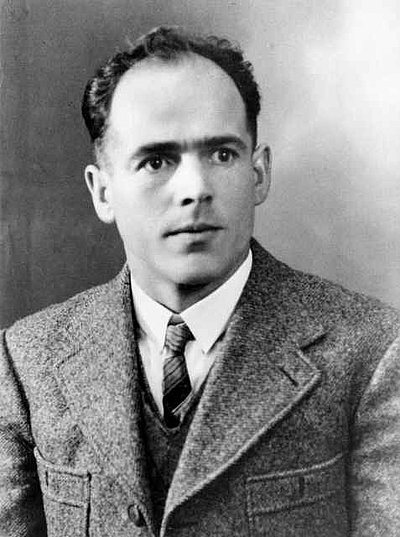New text by Franz Jägerstätter shows motivation for resistance to Nazism
A new handwritten text by Franz Jägerstätter surfaced at the end of 2021. His daughter, Maria Dammer holds it in her hand.
As he did not want to serve the Nazi regime as a soldier, Franz Jägerstätter went to his death. Now a new document from his pen has surfaced. In it he explains the reasons for his steps - and how his faith led him to the resistance.
A previously unknown document written by Franz Jägerstätter makes clear the motivation of the blessed who was murdered by the Nazis for "subversion of military strength". At the weekend, the Franz and Franziska Jägerstätter Institute at the Catholic Private University of Linz presented the two-page handwritten document to the public. Time indications suggest that it is one of the last texts Jägerstätter wrote before his arrest on 2 March 1943. The content of the text deals with the question of the legitimacy of conscientious objection. Typical for Jägerstätter is the introduction with a thematic question, here: "How did I actually get the idea not to enlist?"
"We can speak of a text that has some unknown elements in the writing of Blessed Franz Jägerstätter that we know," says Andreas Schmoller, director of the Institute - even if the writing does not overturn the picture of the Austrian drawn by research so far. "The content is clearly in harmony with Jägerstätter's well-known reflections on the just war, the anti-Christian character of the Nazi regime and the relationship between religious and secular authorities," Schmoller continued. In particular, it traces how Jägerstätter weighed and developed his decision to refuse military service. Jägerstätter's argumentation predicted the Church's developing attitude towards conscientious objection to military service.
Jägerstätter's biographer Erna Putz pointed out that the spiritual dimension was particularly clear in the new text. Jägerstätter owed the fact that it could not be a sin if he did not follow the order to be drafted to the work of God: "But when I took refuge in God, [...] He sent me salvation ...", the text says.
Chance find during local history research
The document has only been in the Institute's possession since last September. It was found by chance in the course of research for a farm chronicle in the estate materials of a private household, so it does not come from the family's estate. After examining the material, the typeface and the content of the letter, the Institute determined beyond doubt that it was indeed a genuine Jägerstätter text.
Born in 1907 in Radegund in Upper Austria, Franz Jägerstätter was a farmer and opposed the National Socialists at an early age, supported by his wife Franziska. In the referendum after the Anschluss, he was the only person in his village to vote "No" against the reunification of Austria with the German Reich. In 1943, after being drafted into the Wehrmacht, he declared his conscientious objection. In the same year he was sentenced to death in Berlin for subversion of military power and murdered with the guillotine on 9 August 1943 in the Brandenburg penitentiary. Jägerstätter was beatified in the Mariendom in Linz in 2007. His feast day is 21 May, the day of his baptism.
A very full biography










.jpeg)

Comments